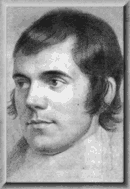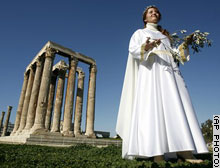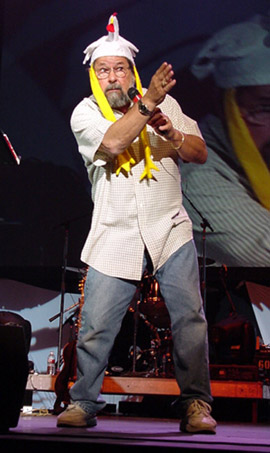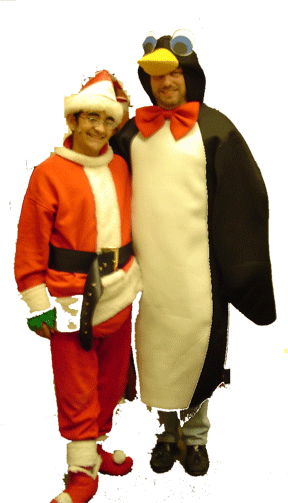E-mail question received:
Mr. Askland, I have been producing tracks for a few years and I’m trying to figure out what to do to sell my beats legally so i decided to ask a professional with more experience. How did you become a music producer? What steps did you take to get started? Is there a certain license you have to apply for with the government or can you use a specific business license?
Response:
I’ve received several emails similiar to this over the last month. Either it’s the same person or a widespread question. I’ll assume it’s a legitimate question.
This seems obvious to me: To be a music producer you just have to produce music. There is no legal stipulation or registration involved. Think of it as being a painter. “Do I have to register with the government to be a painter?” – No, you just paint.
I think your unspoken question has to do more with sample clearance and copyright issues. I’ll address each seperate issue as to what I THINK you are really asking.
SAMPLE CLEARANCE
If you use a sample of pre-recorded music in your track, it is NOT cleared, and someone recognizes where the sample came from – you are in a bad spot. If your track has generated over $10,000 of revenue you can expect some legal papers in the mail. Copyright is seperate from Master Recording rights. One person owns the copyright on the song, and a different person can own the rights to the recording (ie: the source of your sample). US Copyright Office website.
Mechanical rights can be obtained to re-record a song already published (published means at least one copy has been offered publicly for sale). The mechanical rights only allow permission to re-record the song, not to use any source master audio material. Mechanical rights are usually in the ballpark of ten cents per copy sold. (If you record an album of ten songs by previously released material, you may pay about one dollar per CD sale in royalties). The amount of mechanical royalties varies but is “reasonable”.
The owner of the Master Recording has the right to negotiate whatever amount they like to clear a sample from it. If they want one million dollars for a two second sample, then you have to pay that or not use it. These fees are considerable. As an example: Around 1996 I used a sample from the “War of the Worlds” radio broadcast. The sample I used was about ten seconds long and only played once in the song. The owner of the master recording wanted $20,000 to use that sample in the piece which was slated to be part of a movie soundtrack.
If you’re already playing in the big leagues (which you’re not if you don’t know this info already) like Aftermath Entertainment then you can afford some sample clearances. Short of that, you need to use samples that are already cleared from sample libraries or create your own material. Quick read: Don’t use samples.
WHAT I DO FOR SAMPLES
There are a lot of “royalty free” libraries out there that really aren’t totally cleared. I’m referring to seperate stand alone websites and a lot of Ebay sales. I don’t trust fringe producers of royalty free libraries because I have little faith that they have the discipline to actually know where all their material came from. For that reason I only use cleared samples from large established companies like Sony, Roland, Big Fish Audio and Sound Ideas. For my productions I do a lot of original MIDI work and also create my own samples if I want a grainy feel, so the other samples I use are just for a little color.
Like my view on Trademarks, don’t worry about it so much until you need to. As my music became more widely heard I would run into situations where something wasn’t cleared properly. So for me it was a slow shift to tighten up on my use of samples. Sometimes a client would bring in a sample of their own and would say they knew it was cleared. My response was “That’s fine. I just need you to sign a paper that you are responsible for any legal action regarding that sample.” I never had a client follow through to sign that piece of paper. They liked relying on me for making sure the project was legal and clean. As a music producer I feel this is one of your chief responsibilites, especially in hip hop music.
SAMPLE VIOLATIONS AND COPYRIGHT LAW
There is no set time limit of how much of a sample violates copyright law. There is no “two second” rule or anything like that. So be careful.
TRADEMARKS
Trademark registration is handled by the US Patent and Trademark Office. A trademark is a name or graphic that represents an entity. You can register with the government if you like for a trademark. It will go into a waiting period for possible disputes, then become “registered” over time – usually 1-3 years. For example, the symbol for Prince is probably trademarked. As is the golden arches for McDonalds, the windows logo for Microsoft, the logos for major television stations and corporations. The name “Dreamworks” was in legal dispute several years ago between Dreamworks in Los Angeles and a smaller Dreamworks company in Florida. Google for more info, I could go on for a long time just about trademarks. Yes, I have trademarked elements of my business. Yes, it was a hassle.
I really think if you are starting out and worrying about trademarks, that you are putting the cart before the horse. It’s like recording artists that spend their time worrying about agents and they haven’t focused on their material yet. I would suggest to worry about these things down the road. For instance, the few trademarks I have personally registered were because I had entities with noticeable marketshare, and there was confusion in the market place about who was the “real” entity. So in order to keep my product lines intact I had to do it. Also, to register for Trademark you should already be doing sales nationally across state lines. Trademark is to protect entities on a national level.
If you think having a trademark is a status symbol then you need to read more information about it. It’s a tremendous burden. Once you are granted a trademark it’s your responsbility to police it’s use. Often you will read stories about major corporations going after mom and pop businesses or college students who are infringing on their trademark. Those news stories usually make it sound like the corporations are behemoths trying to control the world. Simply not true. Those corporations are under a LEGAL RESPONSIBILITY to enforce their trademarks. If the trademark becomes diluted, ie: other people are using it actively, then the trademark holder can lose their trademark. Some stories you can look up in this area are Kleenex and Xerox. In my case, I had one trademark in process that unfortunately used a name that was original on a local level but in widespread use in different variations on a national level. I finally had to abandon it because it made bad business sense to commit the amount of legal resources it would take to enforce the trademark.
BUSINESS LICENSE
If you are running a recording studio then you can obtain a business license from your local town. You don’t need one as a producer, but just for the business if you have paying clientele. These are usually inexpensive, from about $40-$100 per year just for the license.
THE EXCEPTIONS
Most of the info I’ve put out here is for people starting out. If Disney is doing a major push on a new artist then they will do everything all at once: Trademarks, Sample Clearance, Copyrights, Licenses, etc. That’s a different animal. For the rest of us mere mortals my advice is to take it as it comes along and focus on your art.
Let me know if there are particulars I didn’t cover or if you have more questions.

 After a 1600 year moratorium, it is now once again legal to worship Zeus in Greece. Ellinais is a group of lawyers and academics who have fought in the courts to bring back part of Greek history. The worship of Zeus had previously been illegal.
After a 1600 year moratorium, it is now once again legal to worship Zeus in Greece. Ellinais is a group of lawyers and academics who have fought in the courts to bring back part of Greek history. The worship of Zeus had previously been illegal. Gemcee, a moderator at my hip hop forum RapDogs.com, has written a great article called We Cannot Be Denied. It talks about turntable courses at Berklee College of Music and the work professor Stephen Webber has done to promote the recognition of hip hop in academic circles. Professor Webber has also helped create the
Gemcee, a moderator at my hip hop forum RapDogs.com, has written a great article called We Cannot Be Denied. It talks about turntable courses at Berklee College of Music and the work professor Stephen Webber has done to promote the recognition of hip hop in academic circles. Professor Webber has also helped create the 
